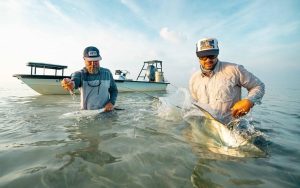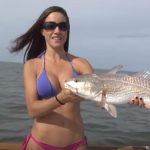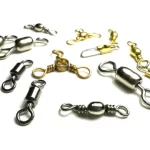Switching from freshwater to saltwater fishing introduces a whole new world of challenges, from different gear requirements to understanding a more complex environment. This guide provides essential tips to help anglers make a smooth transition into the saltwater fishing realm, ensuring a successful and enjoyable experience.
1. Target One Species at a Time
Saltwater fishing presents a diverse array of species, each with unique behaviors, habitats, and migration patterns. For beginners, it’s advisable to focus on just one species initially. Researching popular local species like tarpon, redfish, snook, or spotted sea trout can provide a solid starting point. Understanding the habits and preferences of your chosen target will increase your chances of success and make your time on the water more productive. Always check the local regulations and guidelines for the species you’re targeting to ensure you’re fishing within legal limits.

2. Get to Know Your Fishing Environment
Understanding the environment is crucial when transitioning from freshwater to saltwater fishing. Unlike freshwater, saltwater environments are influenced by a variety of factors, including tides, currents, and weather patterns. Researching and familiarizing yourself with these elements is key to determining the best fishing spots and times. Utilize resources like tide charts and local fishing reports to get an idea of the optimal fishing windows for your targeted species.
Saltwater locations offer a variety of fishing methods, such as pier fishing, surf fishing, and deep-sea fishing. Pier fishing is a great entry point for beginners, requiring minimal gear and providing easy access to a variety of species. For those seeking a more immersive experience, booking a guided deep-sea fishing trip can be an excellent way to learn the ropes from seasoned professionals.
3. Equip Yourself with the Right Gear
Saltwater fishing demands more robust gear than freshwater due to the harsher conditions and stronger, larger fish. Saltwater can corrode equipment quickly, so investing in durable rods, reels, and lines is essential. Look for gear made from corrosion-resistant materials such as stainless steel, titanium, or carbon fiber. When it comes to fishing lines, options like monofilament, fluorocarbon, and braided lines offer the strength needed to withstand the challenges of saltwater fishing.
If you’re hesitant about investing in new gear, consider booking a guided trip first. Professional guides often provide high-quality gear, allowing you to experience saltwater fishing without the initial investment. Additionally, guides can offer valuable advice on maintaining and caring for your gear to ensure its longevity.
4. Master Saltwater Knots and Rigs
The transition to saltwater fishing requires mastering new knots and rigs that can handle the size and strength of saltwater fish. Saltwater knots are designed to be stronger and more durable, capable of withstanding the rough conditions and powerful fish. Start by learning a few fundamental knots such as the improved clinch knot and the uni knot, both of which provide reliable connections for various fishing scenarios.
In terms of rigs, the dropper loop rig is a versatile option that works well for beginners. This rig allows you to present bait at different depths, increasing your chances of attracting fish. Practice tying these knots and setting up rigs before heading out on your saltwater fishing adventure to ensure you’re prepared for the challenges ahead.

5. Learn from Local Anglers
When it comes to saltwater fishing, local knowledge is invaluable. Experienced local anglers can provide insights into the best fishing spots, bait choices, and techniques that work best in the area. Whether you’re fishing from shore, a pier, or a boat, their advice can greatly enhance your success.
For those who are unsure where to start, consider reaching out to local fishing guides. Many guides have years of experience in specific regions and can tailor your fishing trip to suit your skill level and goals. They can also introduce you to the nuances of saltwater fishing, making your transition from freshwater smoother and more enjoyable.
By following these tips, freshwater anglers can confidently venture into the world of saltwater fishing, equipped with the knowledge and tools needed to succeed. Whether it’s learning about the environment, selecting the right gear, or seeking advice from locals, preparation is key to making the most of this exciting new fishing experience.
Images/Source: anycreek





